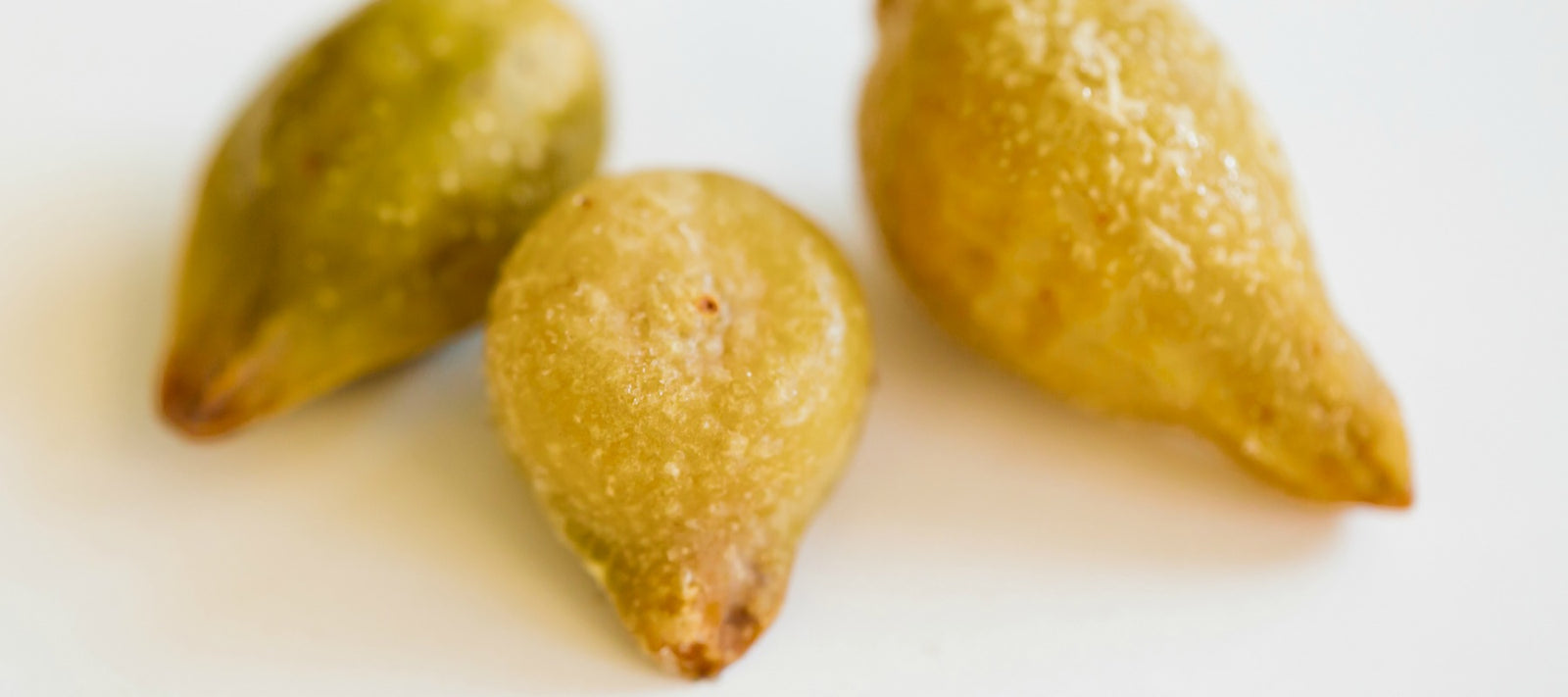Your Cart is Empty
We’re on a short New Year break — orders ship 5 January 2026 🌿

Scientific name: Terminalia ferdinandiana
Origin: Australia
Source: Indigenous community in the Kimberley, WA
A family holiday caravanning through central Australia and up to the Kimberley exposed us to some of the amazing powers of our much-underappreciated Australian native superfoods. I attended an information session and fell in love with everything about Kakadu plum and many more of the Australian plants that have been used by the indigenous people for centuries. Perhaps including it in many of our balms was meant to bee.
Kakadu plum has been part of indigenous diets for many centuries. In Western Australia, it was traditionally used as a snack on hunting trips, or pounded and soaked in water to make a refreshing drink that was popular with children. But what can it do for our skin?
Kakadu plum is the highest food source of vitamin C in the world, containing 3,000mg (or 3g) of vitamin C per 100g of fruit. Oranges contain 50mg per 100g. Vitamin C is an antioxidant, which we need to protect our bodies against damage (Hechtman, 2014 – Clinical Naturopathic Medicine). Not only does vitamin C provide direct protection, it also works together with other antioxidants, including ones we produce ourselves. Of course, we need vitamin C in our diets too, and even many people in wealthy nations to not consume enough due to the lack of fresh fruit and vegetables. If you smoke, your requirements are double that of a non-smoker.
Kakadu plum contains other antioxidants too; these include ellagic acid and tannins, which are also found in tea. It is 37-50 times higher in ellagic acid than blackberries, which are considered to be a rich source of the phytochemical (phyto = plant). These have their own beneficial properties. Ellagic acid may help to reduce skin discolouration. Tannins are the main phenolic in Kakadu plum, and they may help reduce the appearance of dry skin conditions and defend against bacteria.
Another benefit of Kakadu plum is that it may impair the growth of common bacteria that live on our skin and cause body odour. This includes a species of bacteria which is a major contributor to acne. Both body odour and acne can be very embarrassing and distressing, so balms that fend off excessive bacteria and do not smother the skin are much-welcomed. The researchers found that the tannins in Kakadu plum were the main antibacterial agents, along with ellagic acid. Tannins also have a drawing, tightening effect that may close up pores; that’s why you get the dry, astringent feeling when you drink a strong cup of tea.
Bee Fact – Honeybees can recognise human faces the same way we do, taking individual parts and putting them all together.
Altogether, the beneficial substances in Kakadu plum make it a powerful antioxidant and antibacterial remedy, perfect for everyday life; hot, sweaty days; or travel to polluted areas.
If you would like to make it a part of your skincare routine, explore our bee-utiful range of products here.
Written by: Tanya Stanley & Alexandra Preston - Naturopath - BHSc (Nat)